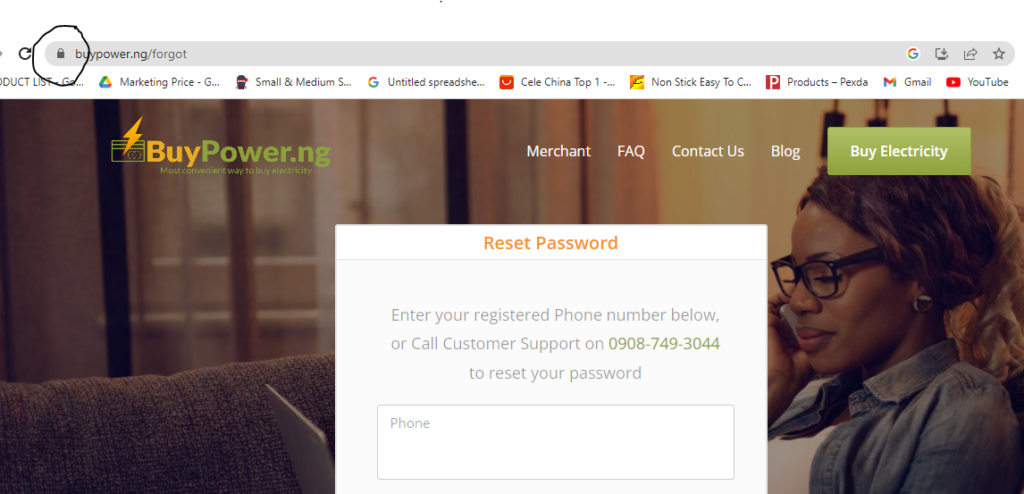Are Online Businesses Legit: An In-Depth Analysis
The manner by which various transactions and operations are been carried out in this present day raises concern about the legitimacy of various online businesses and this comes down to the liberty to work anywhere at any time, age bracket and indisposition to talk to anyone (irrespective of location and race)
The evolution of technology, the internet and digital technologies have exploded knowledge acquisition, market research effective marketing strategies, wide reach and easy communication channels which has turned out to be a blessing causing a large number of people to amass wealth in financial fortunes, become an influencer with large following easily within a short time
The cons of online business are the fierce competition between individuals, and groups of common and different races example includes a Nigerian starting a fashion business, he/she is competing with several other fashion businesses within the same location and outside its location for the same customers and influence
In the last 5-7 years, online businesses have become increasingly popular as a strategy which offers a wider reach of products and services to customers around the globe in little or no time.
However one of the disadvantages is the increasing number of fraudulent scams which has robbed people of their hard-earned money which has hesitated in a lack of trust and credibility in various online businesses.
In this article, we are exploring how to identify whether online businesses are legitimate, and what factors should potential audiences look for as a credibility factor in an online business
Understanding How Online Businesses is been carried out
Before we can discuss the legitimacy of online businesses, it’s important to understand the definition and how they operate.
Online businesses are personal, professional, commercial or industrial activities conducted over the Internet either for profit or nonprofit, they range from buying and selling, training, trading, and consulting etc
The major goal of an online business is to carry out transactions be it physical products or digital services efficiently and effectively with or without time barriers and often rely on platforms such as e-commerce, content management system and online marketing strategies (like social media, affiliate and influencer marketing) to reach their customers.
There are quite a lot of similarities and differences between online businesses and physical (traditional) businesses located near the roadside, market or around car parks etc.
Factors that determined if Online Businesses are Legit
The concerns of many people about the legitimacy of online businesses are based on security and fraud. However, online businesses can be just as legitimate as their physical counterparts, provided both recipients and parties follow certain standards and regulations.
1. Legal Registration Requirements
Online businesses are registered with domains just like traditional businesses with governmental agencies which could be .com, .design, .com.ng etc
This registration of domains and URL addresses is easy and fast, its a business on its own as several individuals engage in domain flipping (a method of buying a domain name as cheaply as possible and reselling it at an increased profit margin to an interested party without doing anything)
Depending on the scope of the online business either as a website or social media platform, information considering the business must be spelt out very articulately. In the about us section of every online business must be a date, number of employees, and certificates of incorporation


You can spot spammy domains on your first visit for example you were sent a link for a governmental job opening when you visited it, It does not look professional with the simplest information of who the governmental organisation is all about, its address and even its phone number
These simple things are highly overlooked which makes people doubt the authenticity of online business in today’s world. A legitimate online business must display the various licenses, and permits it receives from the traditional business regulation it requires to operate legally and must comply with regulations related to taxes, consumer protection, and data privacy
2. Credibility and Reputation
One of the most important factors contributing to the legitimacy of online businesses is their credibility and reputation.
Legit Online businesses establish a strong brand identity, reputation and unique value proposition that communicates directly to their customers to build trust with their customers.
The next time you are directed to a website or link, check out their about us section just as in the diagram below

This can be achieved through well-defined effective branding and marketing strategies, transparency, optimum communication as well as positive customer reviews and ratings.
3. Secure Transactions
Another key factor in the legitimacy of online businesses is the security put in place for every transaction. For an online business that has a website, one critical key is very important which is circled in the diagram below

In every transaction which involves making a payment online, avoid saving your card details to your Google account.
Data from prospective customers who visited the website must be kept secure at all times and at the same time ensuring how you accept cookies while surfing the internet is very important
Trust is a major ingredient in every business transaction so therefore is imperative for every successful online business to ensure the security of their transactions by implementing secure payment systems, encryption protocols, website SSL certificate two-factor authentication against cyber crimes and infiltration of hackers as well as providing clear and transparent policies related to data privacy and security such as moneyback guarantees on products bought

Customer Support
Finally, online businesses must provide high-quality customer support in order to demonstrate their legitimacy. Customer support needs to be hands-on and be ready to respond to inquiries on time even in the application of automation.
There are several channels such as email, phone, and live chat support to communicate with customers in this present age with respect to questions or concerns and receive timely and helpful responses. Observing this will help to alleviate fears about legitimacy in online business
How to Find Out if online businesses are legit?
Let’s explore the various types of online businesses and provide an in-depth analysis of their credibility/legitimacy
Is E-commerce Legit?
E-commerce is a type of online business where goods and services are sold over the Internet, with this business ranging from small/medium, home-based businesses to large corporations like Etsy, jumia, Konga etc.
One of the most significant advantages of e-commerce is that it offers a vast selection of products and services for customers to choose from and an easy way to grow your business as a trader/supplier or seller more than what it will take in an offline/physical shop.
With this advantage, it poses risks, such as fraud, identity theft, and delivery problems. Here are tips to consider the legitimacy of e-commerce
a. Checks out the about us of the e-commerce store, this about us explains the business in brief
b. Look out for the most recent customer feedback, reviews
c. Find out if the e-commerce store has a return policy especially when it is dealing in physical goods. because this can cover if you receive a default product
Is Dropshipping legal and legitimate?
Dropshipping is a popular e-commerce model that involves selling products without holding any inventory. Instead, the dropshipper purchases the product from a third-party supplier who ships the product directly to the customer. While dropshipping offers several benefits, such as low start-up costs and low overheads, it also has some drawbacks, such as a lack of control over product quality and shipping time.
Here are tips to consider the legitimacy of dropshipping
a. Check out for the store/suppliers information, is it duly registered with the government and is it posted on the store just like in the diagram below
b. Check out for when the store was opened, a store opened 5 -7 years ago has its pedigree to protect unlike one newly created
c. Check out for the recent customer reviews of the store in the last few months
d. Evaluate the product distribution of the store, for example when a store is selling electronics and mixing it with fashion, shoes and bags. It’s not a good sign (you need to watch out)
Is Affiliate Marketing Legit?
Affiliate marketing is a type of online business where a marketer promotes other people’s products and earns a commission for every sale made through their affiliate link.
Affiliate marketing is a popular way to make money online, and many successful online marketers have built their businesses around this model.
However, affiliate marketing also has its risks, such as fake reviews and low-quality products. Here are tips to consider the legitimacy of affiliate marketing
a. Look out for reliable suppliers or websites where you can promote their products and services without issues
b. Study the market and ensure you follow through with optimum customer satisfaction
c. Ensure you choose a product that suits your passion, solves a problem and has significant market demand
d. Avoid marketing for suppliers/websites with fast money claims, low-quality images, many website redirections, and multiple ads.
Online Freelancing
Online freelancing involves offering services online, such as writing, graphic design, programming, and virtual assistance. It is mostly done by individuals or teams called freelancers who can work from anywhere
However, online freelancing also has some risks, such as clients not paying for work or disputes over the quality of the work.

To determine authentic jobs from non-authentic ones, it’s imperative for you to select jobs with verified payment rather than payment unverified, reviews and past feedback are other indicators to look at to avoid freelance scams.
Online Trading
Online trading involves buying and selling financial instruments, such as stocks, bonds, and currencies, through online platforms. Online trading offers several advantages, such as low fees and convenience, but it also poses some risks, such as market volatility and fraud. Before you trade in a specific coin, or currency, ensure you have evaluated & analysed the trade partners, organisation etc
Online Investing
Online investing involves investing in stocks, bonds, mutual funds, and other financial instruments through platforms. Online investing offers several advantages, such as low fees and convenience, but it also poses some risks, such as market volatility and fraudulent activities.
Evaluate the management of the business you want to invest,
- are they reputable brands?
- Do they have a physical location?
- What is the feedback from past clients who invested?
Online Tutoring
Online tutoring involves teaching and assisting students over the Internet. Online tutoring offers several benefits, such as flexibility and convenience, but it also has some drawbacks, such as the lack of personal interaction and technical issues.
In conclusion, online businesses can be just as legitimate as their physical counterparts provided they follow the necessary requirements explained above.
While there are certain risks associated with conducting business online, these can be mitigated by taking the necessary precautions and following best practices. By doing so, online businesses can establish themselves as credible and trustworthy entities in the digital marketplace.
Kindly comment below with what exactly you will look out for while transacting or carrying out any online business



